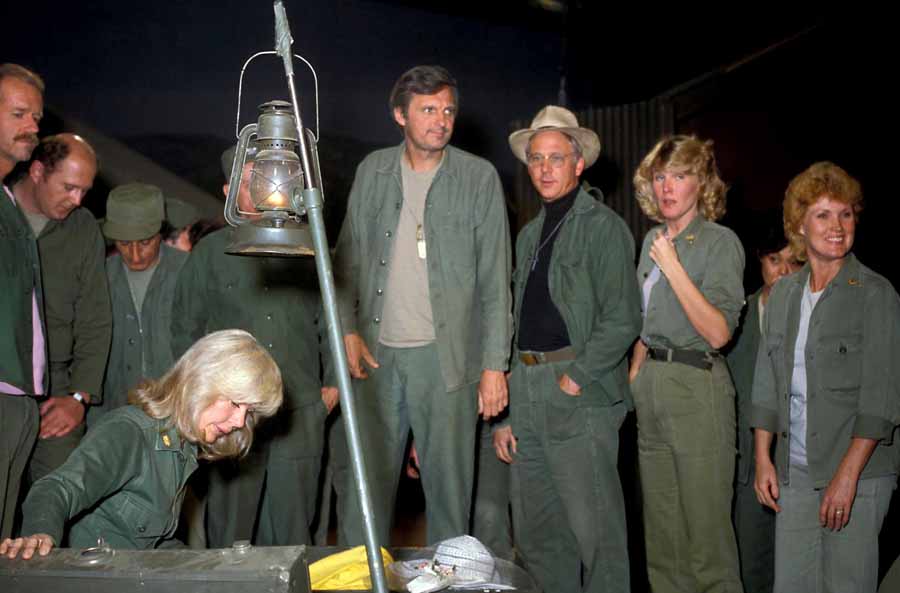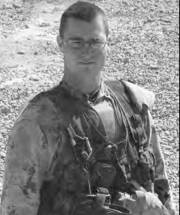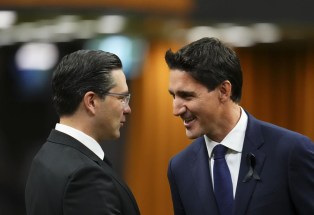M*A*S*H an early and influential example of the dramedy
Read this article for free:
or
Already have an account? Log in here »
To continue reading, please subscribe:
Monthly Digital Subscription
$0 for the first 4 weeks*
- Enjoy unlimited reading on winnipegfreepress.com
- Read the E-Edition, our digital replica newspaper
- Access News Break, our award-winning app
- Play interactive puzzles
*No charge for 4 weeks then price increases to the regular rate of $19.00 plus GST every four weeks. Offer available to new and qualified returning subscribers only. Cancel any time.
Monthly Digital Subscription
$4.75/week*
- Enjoy unlimited reading on winnipegfreepress.com
- Read the E-Edition, our digital replica newspaper
- Access News Break, our award-winning app
- Play interactive puzzles
*Billed as $19 plus GST every four weeks. Cancel any time.
To continue reading, please subscribe:
Add Free Press access to your Brandon Sun subscription for only an additional
$1 for the first 4 weeks*
*Your next subscription payment will increase by $1.00 and you will be charged $16.99 plus GST for four weeks. After four weeks, your payment will increase to $23.99 plus GST every four weeks.
Read unlimited articles for free today:
or
Already have an account? Log in here »
Hey there, time traveller!
This article was published 23/09/2022 (1171 days ago), so information in it may no longer be current.
M*A*S*H, which marks its 50th anniversary this year, was a network sitcom that churned out 24 half-hour episodes a season from 1972 to 1983. At the time, prestige TV wasn’t even a glimmer in some HBO exec’s eye, and still this series, about the madcap members of the 4077th Mobile Army Surgical Hospital during the Korean war, had an unexpected influence on the contemporary television landscape.
Before Tony Soprano revealed himself in haunted dreams in The Sopranos, we had M*A*S*H’s doctors and nurses on a 33-hour shift dropping off to uneasy sleep and into surreal dream sequences.
Before Game of Thrones abruptly axed Ned Stark, M*A*S*H killed off a favourite character with shocking suddenness in the landmark episode Abyssinia, Henry.
Before the workplace shenanigans of Brooklyn Nine Nine, M*A*S*H characters were fighting the fear and boredom of war with elaborate stunts and practical jokes.
Before The Office used the interview format, M*A*S*H did an episode in which characters spoke directly to the camera of a visiting journalist (played by real-life war correspondent Clete Roberts).
There were standalone experimental episodes. One was shot entirely from the first-person point-of-view of a wounded soldier. In another, Hawkeye Pierce (Alan Alda) delivered an unending stream-of-consciousness monologue to keep from falling asleep after sustaining a head injury.
The show is also an early and outstanding example of the dramedy, with its best episodes catching a complex tonal mix of dark humour, difficult emotion and sweet, silly everyday human interactions, all set against the often horrific backdrop of the war. The writers perfected the A-and-B-storyline structure, with a serious dramatic plot counterpointed by something goofy.
Maybe most importantly, M*A*S*H showed that a series could evolve. Early seasons were prone to racist and sexist tropes, with the caricatured depictions of Korean characters, the interchangeable nurses being canoodled by doctors in the supply tent. Later seasons tried hard to course-correct.
The show’s final instalment remains the most-watched television episode ever and is an indelible part of my formative three-channel TV years. Dipping into the show now (all 11 seasons are available to stream on Disney+), I was struck by how immediately everything came back, calling up intense sense memories, from the plaintive instrumental song of the opening credits to the set’s khaki-coloured look and feel. I remembered the random kibbitzing in the mess tent and the urgent rhythms of the O.R. scenes, which mixed blood with jokes, as the doctors performed “meatball surgery,” as they called it, to patch up as many kids as they could under desperate circumstances.
The basic setup was straightforward. Hawkeye Pierce and his tent-mate Trapper John (Wayne Rogers) were gifted surgeons and womanizing, hard-drinking partners-in-crime. Their frequent targets were uptight no-fun-nik Frank Burns (Larry Linville) and Margaret (Hot Lips) Houlihan (Loretta Swit), the by-the-book head nurse with a hidden passionate side. Their antics were overseen by appealingly incompetent commanding officer Henry Blake (McLean Stevenson) and his sidekick Radar O’Reilly (Gary Burghoff).
The show was set during the Korean War but was really about the Vietnam conflict, which was still going on in 1972 when the series debuted. The source novel by Richard Hooker had already been adapted into a cynical, caustically comic 1970 movie by Robert Altman. The TV show kept the irreverent laughs but tended more to upbeat humanism and sometimes downright sentimentality. (Altman hated the series.)
The series’ longevity allowed it to stretch the possibilities of the 1970s sitcom. It addressed racism, alcoholism, trauma and mental health. One episode, brave for its time, looked at the plight of a gay man in the military (a “non-heterosexual,” as prissy Frank says).

Some of the changes came with the shifting cast. The philandering Trapper John was replaced by B.J. Hunnicutt (Mike Farrell), famously devoted to his wife back home. Thin-lipped Frank, who was in many ways an awful human being but whose relentless persecution by “the cool kids” had come to feel more pathetic than funny, was traded for Charles Emerson Winchester (Davd Ogden Stiers), a New England blue blood better at standing up for himself.
There were limitations to the show. M*A*S*H often set out a serious issue and then neatly wrapped it up within 22 minutes.
Still, the characters’ central problem threaded through the entire series with uneasy complexity. As Henry once told Hawkeye, there are rules to war: “Rule number 1 is young men die, and rule number 2 is doctors can’t change rule number 1.” The groundbreaking comedy in M*A*S*H came from the characters knowing this and finding a way to keep going anyway.
alison.gillmor@freepress.mb.ca

Studying at the University of Winnipeg and later Toronto’s York University, Alison Gillmor planned to become an art historian. She ended up catching the journalism bug when she started as visual arts reviewer at the Winnipeg Free Press in 1992.
Our newsroom depends on a growing audience of readers to power our journalism. If you are not a paid reader, please consider becoming a subscriber.
Our newsroom depends on its audience of readers to power our journalism. Thank you for your support.








